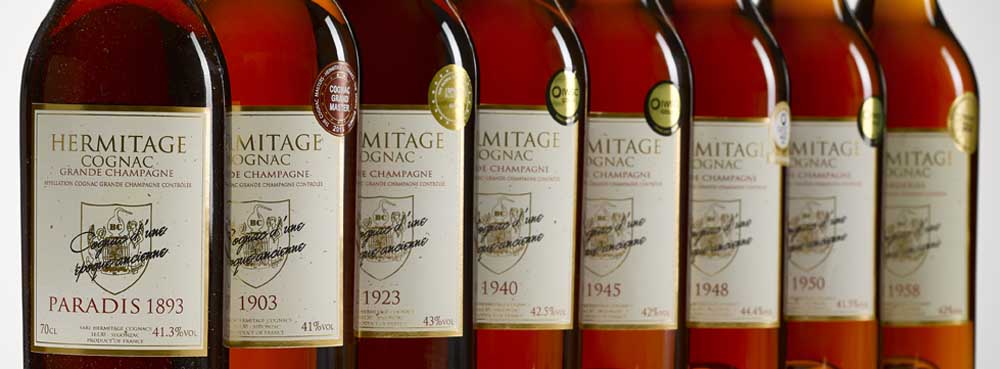The Importance of Barrel Age on a Cognac Label
 The growth in generic cognac sales over the last quarter of a century has distracted from the single most important criteria in determining the quality of a cognac. The age, or to be precise, the barrel age of a cognac is the most important element of cognac quality, yet we so often fail to ask the age question. Currently there simply is not enough information on the bottle to make it interesting. Compare that to a single malt whisky where the label tells us its barrel age, who made it and even what barrel it was stored in. It is little wonder that single malts outsell cognacs by a factor of 10 : 1.
The growth in generic cognac sales over the last quarter of a century has distracted from the single most important criteria in determining the quality of a cognac. The age, or to be precise, the barrel age of a cognac is the most important element of cognac quality, yet we so often fail to ask the age question. Currently there simply is not enough information on the bottle to make it interesting. Compare that to a single malt whisky where the label tells us its barrel age, who made it and even what barrel it was stored in. It is little wonder that single malts outsell cognacs by a factor of 10 : 1.
Sure, there are other factors that affect cognac quality, the cru, shape and size of the still, the cut, variations in the actual distillation, the size and age of the barrels, the storage conditions . . . . . . the list goes on but the longer the cognac is allowed to sleep in the barrel, the better it is. The provenance is the one piece of information that tells us more about its quality than all the other cognac features put together.
Of course, where the cognac was made and who made it is important. However, even cognac that has been made in the top cru by a family producer, will lose its identity once it has been sold to one of the big houses as they have to blend hundreds of different cognacs together to meet their customer demands. Fortunately, there are still family firms who sell their cognacs independently. These single estate producers are much more likely to provide cognacs that have aged for more than the minimum number of years and to have kept their best and oldest in the family cellars.
Modern wine and spirit retailers have little knowledge of cognac. It is not their fault. They simply have not been told and there is no information on the bottle to encourage questions. Many retailers consider themselves as mainly wine retailers, yet if they were to learn about cognac and actively sell it, it would provide them with a much more interesting sale (there are so many different processes it goes through over a much longer ageing process than any other alcoholic beverage). Values and margins are higher, and the story is more involved and interesting than wine. After all, cognac starts as a wine.
So, you may say “Where do we go from here?” Supermarket shelves are stocked with generic blends which do not sell and if you ask for a brandy in a hotel or bar you are offered a VS, VSOP or XO. Growers and producers must make their cognacs and labels more interesting by keeping some of their cognacs back from the big houses to sell independently with age statements.
But perhaps the best idea is to draw up a long term plan and ask where producers want to be in the future; struggling to get a decent price from the big houses or offering what their forefathers would have liked, unique cognacs that have been properly aged and recognised for the unique flavours and styles that they have spent generations in perfecting. Not only will they get recognition for their cognacs, but they will get much more money for them as well. Cognacs are complex and have interesting flavours that have developed in their barrels over decades. This is why cognac is the King of all Spirits.
